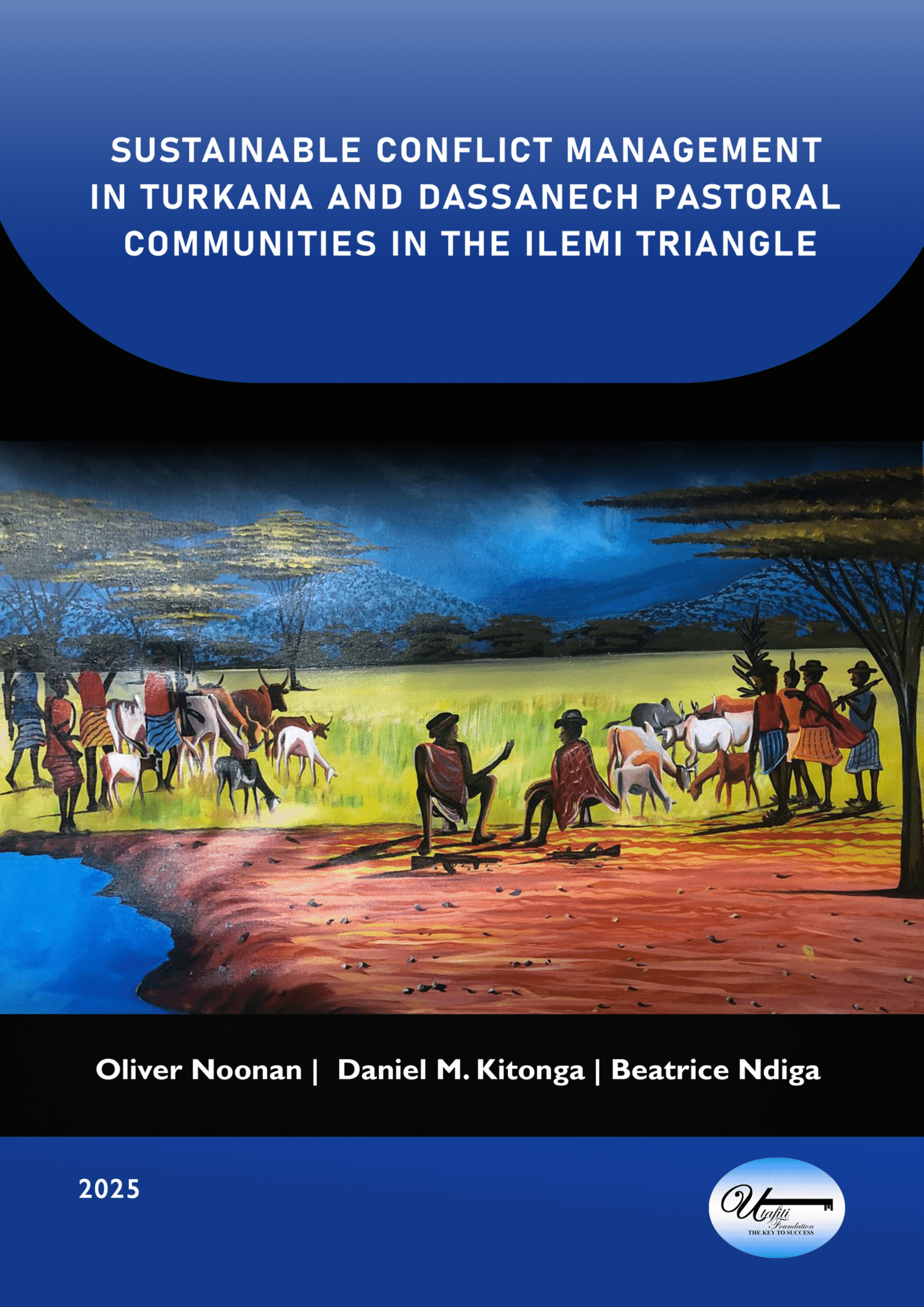Description
This book explores the dynamics of social organisation and their implications for sustainable conflict management among pastoral communities in the Ilemi Triangle. Located at the intersection of Ethiopia, Kenya, and South Sudan, the triangle’s sovereignty is contested by the latter two countries. The area faces intermittent conflict among the Turkana, Dassanech, Nganyatom, and Toposa communities, making peace an ongoing challenge. Focusing on the Dassanech and Turkana communities due to the increasing frequency and severity of violent conflicts between them, this book examines the dynamics of informal social structures within communities concerning conflict management. It also investigates community decision-making processes surrounding conflict resolution and evaluates the role of inter-communal dialogue.
Dr. Oliver Noonan, PhD, is a member of the Society of African Missions (SMA) and has worked in Zambia, spending the last 21 years in Kenya, particularly among the pastoral communities in the northern region of the country. He serves as the Executive Director of the Shalom Centre for Conflict Resolution and Reconciliation (SCCRR), which promotes peaceful coexistence among various ethnic groups across East Africa. He has published articles on how informal social structures, decision-making, and inter-communal dialogue influence communities’ responses to conflict. Dr Noonan has taught at Tangaza University and continues his research into the organisational structures of pastoral communities in East Africa, aiming to uncover long-term solutions to conflicts.
Dr. Daniel M. Kitonga is a distinguished academic and educational leader with a strong background in business and education. He holds a Diploma in Philosophy, a BA in Religious Studies, an MBA in Entrepreneurship from the Catholic University of Eastern Africa, and a PhD in Business Administration – Strategic Management from Jomo Kenyatta University of Agriculture and Technology. Dr. Kitonga has held various positions, including lecturer, programme director, and senior administrator. He emphasises the importance of critical reasoning, creativity, and real-world application in education and mentorship. His scholarly contributions span multiple disciplines and have a positive impact on education, business, and community development. Furthermore, he is a member of the Bioethics Society of Kenya and serves as Chair of the Institutional Scientific and Ethics Review Committee at Tangaza University.
Dr. Beatrice Ndiga is a Senior Lecturer with over twenty years of university teaching experience, primarily at Tangaza University. Her specialization is in leadership, and she has extensive service in institutional management. She holds a Doctor of Philosophy degree in Educational Management and Planning from the Catholic University of East Africa, a Master of Education degree from the University of Nairobi, and a Bachelor of Education degree from Kenyatta University. Dr. Ndiga has numerous publications and has supervised many postgraduate students in their research, focusing on both social transformation and education.





Reviews
There are no reviews yet.